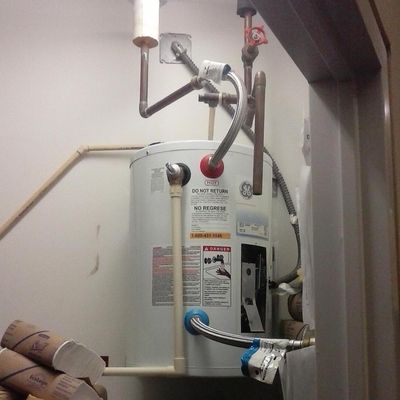
A great way to start a career is in the commercial roofing industry. They pay higher wages and offer more training than residential jobs. Additionally, they give you a sense accomplishment and satisfaction. But, it is not easy to get into a commercial roofing company if your industry knowledge isn't up-to-date. These are some tips that will help you make the right choice.
Roofing Careers
This rewarding and challenging job can be yours, whether you are looking to become a roofer. The roofing industry is an expanding one that provides many opportunities for both novices and veterans.
The Occupational Outlook Handbook estimates that employment in the roofing industry will grow by 4% through 2022, with some job postings offering positions with no experience required. For those interested in this career, the key is to start learning the skills and techniques that are necessary for commercial roof installation and repair.
Professional Development
To learn the ins and outs of commercial roofing, attend an industry training course to get the most up-to-date information. These courses will teach you the best methods for installing roofing, as well the most recent innovations. They also provide a way to meet professionals in the field, and get valuable insight into their daily work.

Getting Started
You will first need to decide what kind of roofing materials are best for you. Single-ply membrane, modified bitumen (BUR), single-ply and metal roofs are the most popular types of commercial roofing. Green roofs may be added to your service list.
The Right Roofing Equipment
While there are many tools that you can use for commercial roofing, the roof trailer is one of the most overlooked. This innovative tool is going to revolutionize how you and your crew handle debris from large projects.
Without having everything in order, your company will not be able to compete against other contractors for larger jobs. It is important to plan how you will handle debris, the materials you will use, and how you'll clean up after your project is finished.
Getting Started
Establishing a strong brand is crucial for any new commercial roofer. You'll need to do this through everything from your website and social media presence to your employee uniforms.
A strong brand image will set you apart from other roofing companies, and it will help you sell your services to clients. Your website should include detailed project descriptions and a contact form, as well as your company's social media pages.

Additionally, you need to develop a marketing plan. This plan will outline how you will promote and sell your services to potential clients. A strong social media presence may be a good starting point, but you should also consider connecting to construction professionals and building owners via LinkedIn or other networks.
Large Project Management
The task of managing large commercial jobs can be challenging and more time-consuming. This is especially true if you need to haul heavy amounts of metal, shingles, and other materials. You'll need to ensure that your team has all the necessary tools for the job, from roof decking to a specialized commercial-grade trailer to help them haul heavy roofing materials.
FAQ
Do you have any other suggestions?
Yes. Check your local laws to see what types of projects are allowed and what conditions must be met. Some states require that you obtain council approval to build. Some states only require you to notify them about your plans. You can check with the local authorities for their views on this issue.
Can I cancel my agreement at any time?
Yes, but you must do it within 14 days after signing the contract. You can usually end your contract by notifying the contractor in writing at least 7 days before the contract's expiration date. In some cases, however, you might still owe contractor money for work done.
What is the maximum amount of money that I can invest in the project?
No. No. You might be able to negotiate lower prices with the contractor.
How much does it set you back to get building permission?
It can vary depending on the complexity of your plan and where it is located. It could also depend on whether or not you are applying to permission to build on your existing home. This can take several weeks so don't be surprised if you have to wait for everything to be completed.
Who has to pay for the service?
Your SCA defines who is responsible for paying for the service. In the event that the service provider is not paid fully, they may be eligible to seek compensation from the courts.
What happens if one side doesn't agree to the deal?
Failure to fulfill your obligations under the agreement can lead to the law allowing the other party to declare your promise null and sue you for damages. Damages include the amount owed in addition to interest, court costs, and legal expenses.
Do I have to sign anything before starting work?
Yes, both parties must sign the SCA. This means that one party cannot change their mind without the consent of another.
Statistics
- Don't take their anger personally, they are mad about the situation 99% of the time. (activatemylicense.com)
- (v) Place or places of performance of the prime contract and first-tier subcontracts estimated at $10 million or more, if known. (acquisition.gov)
- Reasonable late fees go up to 25% per year on unpaid sums. (lawdepot.com)
- (1) Ascertain the extent to that offers are based on the payment of overtime and shift premiums; and (2) Negotiate contract prices or estimated costs without these premiums or obtain the requirement from other sources. (acquisition.gov)
- (3) The contracting officer may provide for a contract price adjustment based solely on a percentage rate determined by the contracting officer using a published economic indicator incorporated into the solicitation and resulting contract. (acquisition.gov)
External Links
How To
What should a service arrangement include?
Any business relationship requires a Service Agreement. It sets out what you expect from one another and how you intend to achieve these expectations. The SA also specifies when and where you expect each party to fulfill its contractual obligations.
Here are the essential elements to a successful SA
-
Both parties agree on the scope of work and the services they require.
-
Details of payment terms including start date and end date for delivery of goods/services.
-
The project price must be agreed.
-
Any additional costs like VAT etc.
-
Whether there are other topics that require discussion.
-
Who will take responsibility if there is an error in the job?
-
How disputes can be resolved
-
What happens if a party breaches the contract.
-
What happens when there is a disagreement?
-
When does the contract come into effect?
-
What happens if one party fails to perform?
-
What length of time will you be required to pay invoices
-
Who pays for travel expenses?
-
Where the money comes.
-
What happens if the client decides to change his mind about the project.
-
What happens if the supplier isn't there?
-
Who has permission to view the site during construction
-
What happens when the customer cancels a project?
-
What happens if the product is faulty.
-
What happens if the manufacturer refuses parts?
-
What happens if your equipment breaks down?
-
What happens if the project takes more time than anticipated?
-
What happens if the work isn’t completed within the stipulated time?
-
What happens if the final product isn't up to expectations?
-
What happens if the cost exceeds?
-
What happens when the materials are not delivered in time?
-
What happens if the material arrives broken?
-
What happens when the products don't meet standards?
-
What happens when the job is cancelled before completion?
-
What happens if the company goes bust.